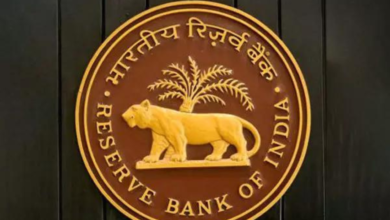
NEW DELHI: Finance minister Nirmala Sitharaman announced changes to the capital gains tax rates, which may not be well-received by stock market investors in her Budget speech on Tuesday. The short-term capital gains tax rate on “specified” financial assets has been increased from 15 per cent to 20 per cent, while all other financial and non-financial assets will be taxed at the “applicable tax rate”.
Long-term capital gains tax rates have also been raised from 10.0 per cent to 12.5 per cent for all financial and non-financial assets.However, the exemption limit for capital gains on certain listed financial assets has been increased from Rs 1 lakh to Rs 1.25 lakh per year, providing some relief to lower and middle-income classes.
Listed financial assets must be held for more than a year to be considered long-term, while unlisted financial assets and all non-financial assets require a holding period of at least two years.
“Unlisted bonds and debentures, debt mutual funds and market-linked debentures, irrespective of the holding period, however, will attract tax on capital gains at applicable rates,” Sitharaman said in her Budget speech. These changes will be effective immediately.
Capital gains are profits or gains arising from the sale of a ‘capital asset’.
In a move to bolster the Indian start-up ecosystem and promote entrepreneurship and innovation, the finance minister also proposed the elimination of the angel tax for all classes of investors. This decision is expected to attract more investments to startups, which play a crucial role in driving economic growth by generating new jobs, ideas, products, and services.
The abolition of the Angel Tax received rare praise from the opposition, with former finance minister P Chidambaram stating, ” was pleased to hear that the FM will abolish the Angel Tax. Congress has pleaded for the abolition for many years and most recently in the Congress Manifesto on page 31.”
Angel tax, introduced in 2012 by the UPA government to identify money laundering practices and bogus startups, is an income tax levied on funding raised by unlisted companies or startups if their valuation exceeds the company’s fair market value. This tax primarily affects angel investments, hence the name “angel tax”.
Long-term capital gains tax rates have also been raised from 10.0 per cent to 12.5 per cent for all financial and non-financial assets.However, the exemption limit for capital gains on certain listed financial assets has been increased from Rs 1 lakh to Rs 1.25 lakh per year, providing some relief to lower and middle-income classes.
Listed financial assets must be held for more than a year to be considered long-term, while unlisted financial assets and all non-financial assets require a holding period of at least two years.
“Unlisted bonds and debentures, debt mutual funds and market-linked debentures, irrespective of the holding period, however, will attract tax on capital gains at applicable rates,” Sitharaman said in her Budget speech. These changes will be effective immediately.
Capital gains are profits or gains arising from the sale of a ‘capital asset’.
In a move to bolster the Indian start-up ecosystem and promote entrepreneurship and innovation, the finance minister also proposed the elimination of the angel tax for all classes of investors. This decision is expected to attract more investments to startups, which play a crucial role in driving economic growth by generating new jobs, ideas, products, and services.
The abolition of the Angel Tax received rare praise from the opposition, with former finance minister P Chidambaram stating, ” was pleased to hear that the FM will abolish the Angel Tax. Congress has pleaded for the abolition for many years and most recently in the Congress Manifesto on page 31.”
Angel tax, introduced in 2012 by the UPA government to identify money laundering practices and bogus startups, is an income tax levied on funding raised by unlisted companies or startups if their valuation exceeds the company’s fair market value. This tax primarily affects angel investments, hence the name “angel tax”.





